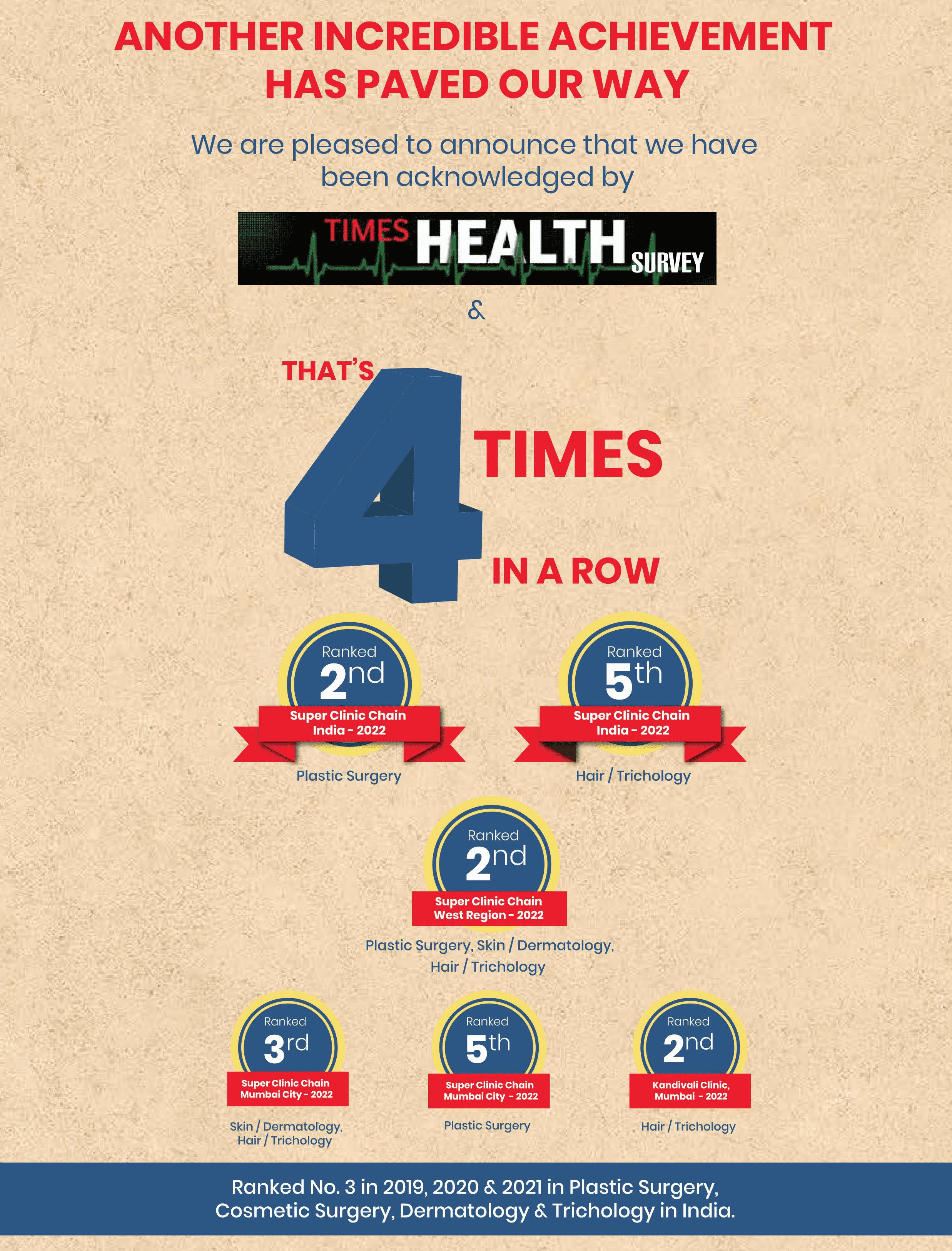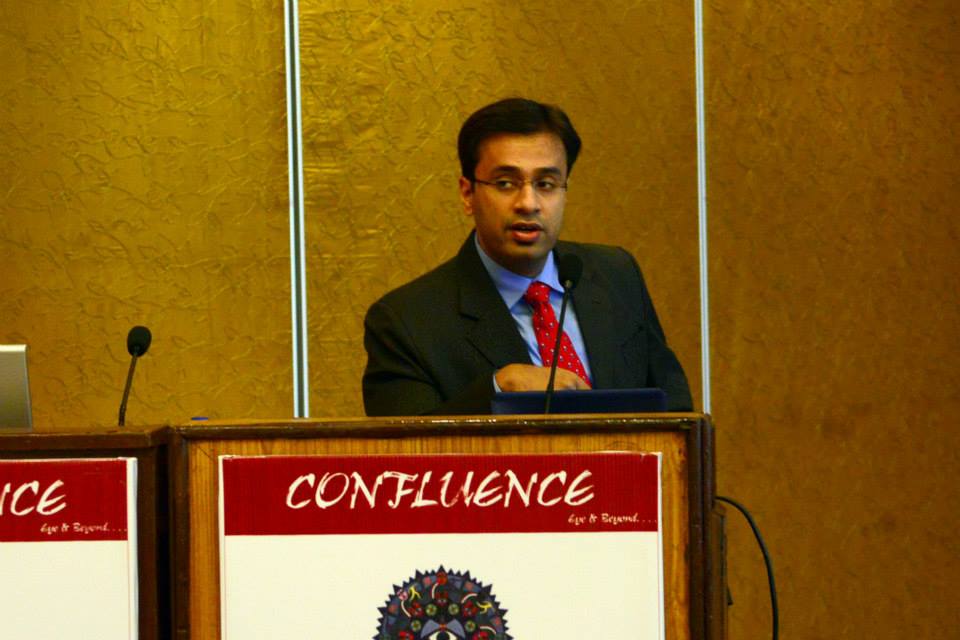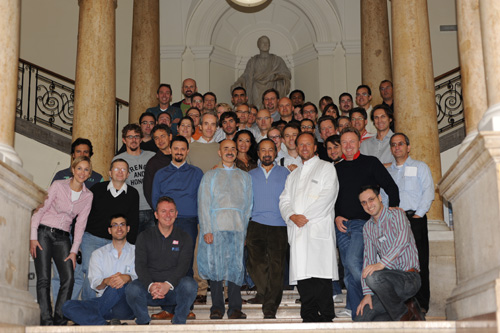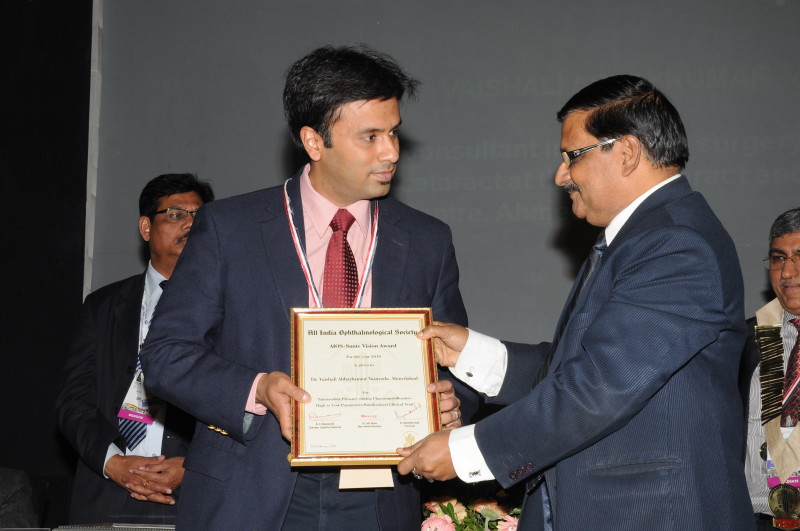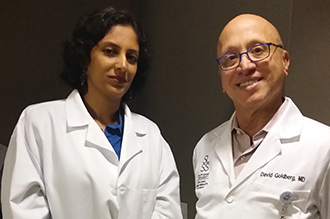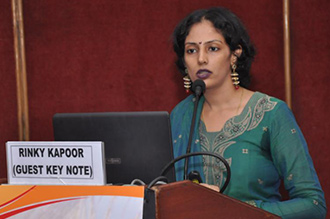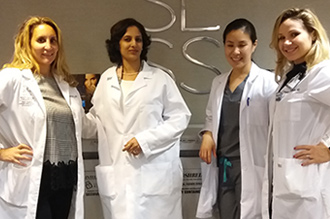Basal cell carcinoma describes a cancerous growth on the skin that has been excessively exposed to the sun – long-term exposure to ultraviolet (UV) radiation has been implicated in cases of basal cell carcinoma. It is so named since it originates from basal cells, which refer to the cell type found at the outermost layer of the skin, and play a significant role in the production of new skin cells as old skin cells shed off. Shedding more light on the aetiology; mutation takes place in the DNA of the basal cell as the skin is persistently subjected to ultraviolet radiation from sunlight or synthetic elements like tanning beds and tanning lamps. And, as this happens, the basal cell will begin to multiply rather than die as it would have been normally expected. The accumulation of these abnormally growing (basal) cells will ultimately lead to the formation of a tumour.
In most cases, individuals suffering from this disorder will have a small transparent bump on their skin. This lump usually appears on the parts of the body that are mostly exposed to the sun – for instance, the skin around the ears, neck, and head. However, apart from the skin, this cancer can also spread to underlying bones and tissues if left untreated. This cancer type progresses at a slow rate, and may not even manifest until the later years in persons that are constantly exposed to the sun for a long period. Basal cell carcinoma may also lead to a host of complications that places an individual at a higher risk of developing other skin cancer types. Again, it can lead to certain respiratory complications or disorders as the cancerous growth spreads to the lungs. It is against this backdrop that it becomes necessary to see a physician if you notice a nonhealing wound/sore on your skin – early diagnosis at a top medical facility with the right diagnostic tools will go a long way in remedying the situation.
Although chronic exposure to sunlight is widely regarded as the primary cause of basal cell carcinoma, several other factors could predispose an individual to this disorder. This is especially so in cases where people who barely expose themselves to the sun ended up developing the disorder. Some predisposing factors for basal cell carcinoma are as follows:
The very first sign that may indicate the presence of basal cell carcinoma is the emergence of a skin lesion that does not heal. With this also come the following symptoms:
Series of diagnostic examinations are usually done to determine the status of the outgrowth on the skin. A commonly used technique is ‘shave biopsy’ which enables the medical expert to determine if basal cell carcinoma is indicated. Again, another technique known as punch biopsy is normally used to check if a more severe skin cancer type is present. To determine if the basal cell carcinoma has spread to the bone and/or other underlying tissues, the doctor will possibly have you undergo imaging diagnostic tests like radiography or computed tomography. Histological examinations can also be conducted to ascertain whether or not the basal cell carcinoma has differentiated. Once the doctor has confirmed the diagnosis, the next line of action will be to design a treatment regimen that would effectively address your situation.
Several therapeutic interventions have been directed at taking care of basal cell carcinoma, and these have given varying outcomes. The choice of treatment type is majorly dependent on the severity of a patient’s condition – but surgery is regarded as the most suitable form of treatment. That said, there are instances where a patient may not be fit to undergo surgical procedures; radiation therapy is usually recommended in such cases. Pharmacologic therapy is also usually employed, with topical medications (such as imiquimod, 5-fluorouracil, and tazarotene), and oral drugs (such as vismodegib and sonidegib) being prescribed for patients. Photodynamic therapy is another treatment option in the management of basal cell carcinoma.
As earlier emphasized, surgeries remain the best basal cell carcinoma treatment option, and there has been a good prognosis associated with a host of surgical procedures in this regard. Some of the surgical protocols for basal cell carcinoma treatment are discussed below:
Well, the possibility of getting a highly satisfactory outcome in the treatment of basal cell carcinoma is quite high, but you must take some preventive measures as this disorder can recur. So, to minimize the risk of it recurring in your case, you should take to the following:
Basal cell carcinoma should not be left to keep proliferating as this could lead to severe complications. You should reach out to the team of medical experts at The Esthetic Clinics nearby today. Our plastic surgeons are on hand to attend to your issue and work out an effective treatment regimen for you. More so, with Dr. Debraj Shome, a highly respected oculoplastic and cosmetic surgeon leading the team, you can be certain that you are in safe hands. It is our pride to see you have healthy skin without any blemishes.
It is important to evaluate your condition before the price of basal cell carcinoma treatment can be given. Factors such as the severity of the condition, prescriptions, selected therapy and diagnosis will go a long way in determining your basal cell carcinoma treatment cost.
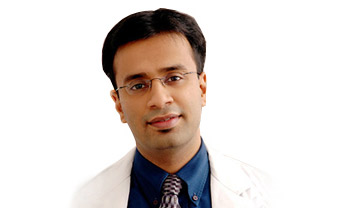

Dr. Debraj Shome is Director and Co founder of The Esthetic Clinics. He has been rated amongst the top surgeons in India by multiple agencies. The Esthetic Clinics patients include many international and national celebrities who prefer to opt for facial cosmetic surgery and facial plastic surgery in Mumbai because The Esthetic Clinics has its headquarters there.
